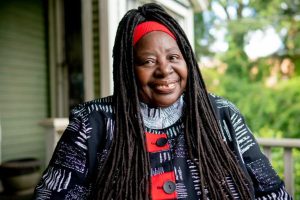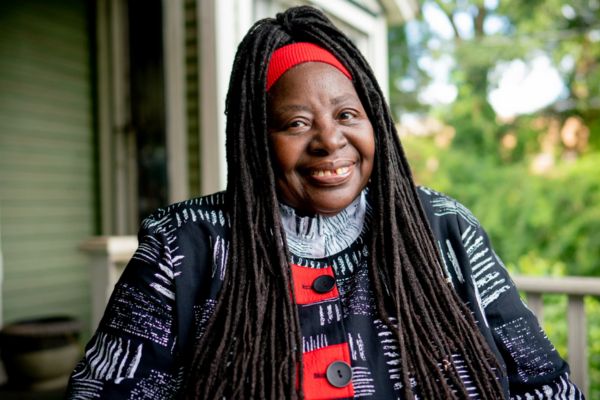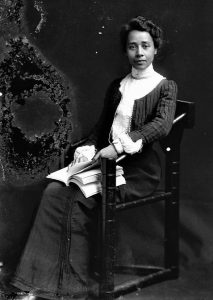 Smith College professor Loretta Ross, of Northampton, Massachusetts, is a 2022 MacArthur Fellow.
Smith College professor Loretta Ross, of Northampton, Massachusetts, is a 2022 MacArthur Fellow.
Smith College professor Loretta Ross is among this year’s recipients of the John D. and Catherine T. MacArthur Foundation fellowship — often called the “genius grant” — given to those with “exceptional creativity” and promise.
Ross, of Northampton, Massachusetts, is a human rights activist and expert on white supremacy.
She helped start the reproductive justice movement, which focuses on inequality around the right to have a child, the right not to have a child, and to bring up children safely.
Ross also works to make public discourse less divisive. She uses the phrase “calling in” to counter the tendency of people to “call out” those who may otherwise share their values.
“‘Calling in’ is holding people accountable for things that they do that are problematic but doing it in a way that is healing versus punishing,” Ross told NEPM in 2019.
Reproductive Justice and Human Rights Advocate Loretta J. Ross shapes a visionary paradigm linking social justice, human rights, and reproductive justice. #MacFellow
Each of this year’s 25 MacArthur Fellows receive $800,000 to spend as they wish, a $175,00 increase from past winners. The foundation calls it a “no-strings-attached award to extraordinarily talented and creative individuals as an investment in their potential.”
Ross said she’s known about the award for a month, but had to keep it a secret. When she first got the call from the foundation, she was driving and — thinking it was about a job reference — told them to call her back later.
“I was so rude!” she laughed.
Professor Loretta Ross discussing reproductive history before 1973.
Ross said she’ll use part of the award money to seed a new major in human rights at Smith College.
“Not that Smith needs help raising money,” she said, “but I figured if I give it a little bit of a push start, it’ll demonstrate that I’m serious about this.”
But most of the money, she said, will help pay for her own long-term care insurance since, at age 69, she needs to prepare for failing health.
“I didn’t want everything I earned in my life to be liquidated because I might need a nursing home,” she said. “When you do 50 years in the nonprofit world, you don’t end up with a big fat pension.”
Ross said getting the award may give her a louder platform, but given her decades in prominent social justice jobs, including leading one of the first rape crisis centers, “I’ve never actually been worried about whether I had a legacy or not, because it’s pretty obvious that I do.”
Her forthcoming book, “Calling In The Calling Out Culture,” is scheduled to be published in 2023. She said she’s also working on a book about the history of Black women and abortion, and another one on abortion politics through the lens of reproductive justice.
Western Massachusetts has been well represented in the MacArthur “genius” award in recent years. Poet Ocean Vuong won in 2019, and fiction writer Kelly Link the year before.




